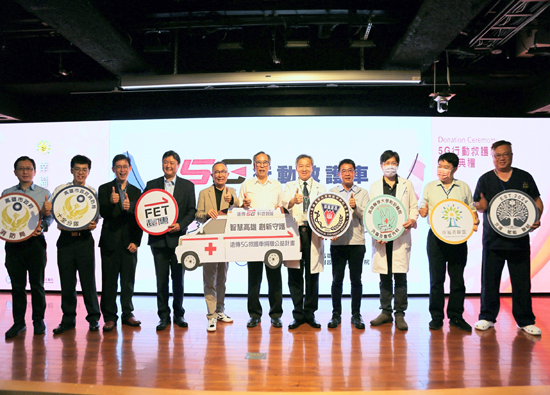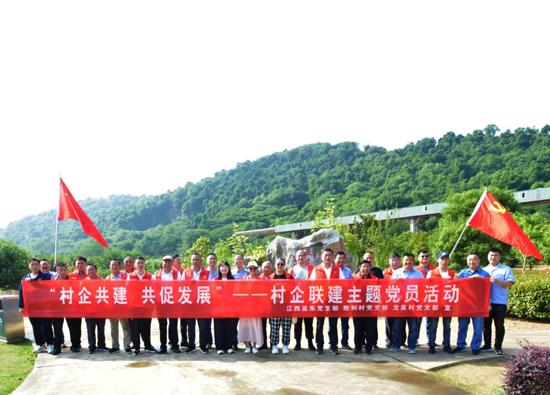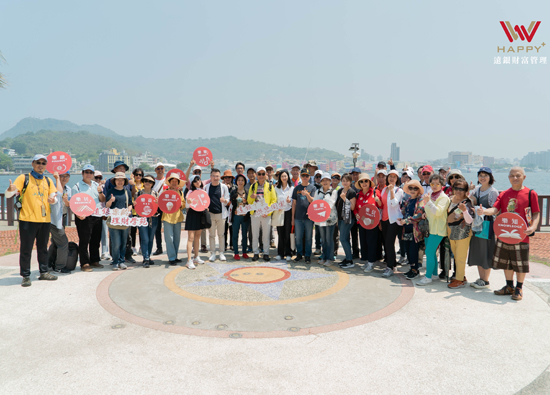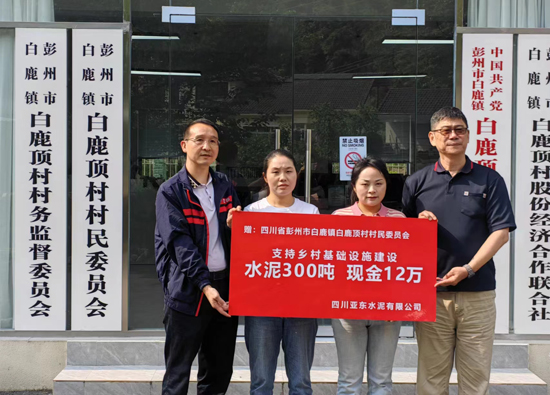07.2024 Group Briefing
U-Ming Marine Transport Convenes 2024 Regular Shareholders Meeting
U-Ming Marine Transport / Huang Yizhen

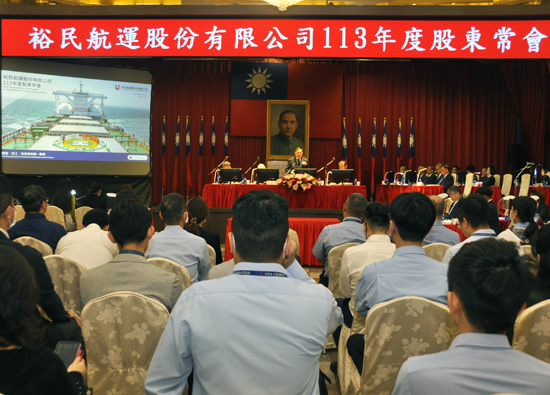
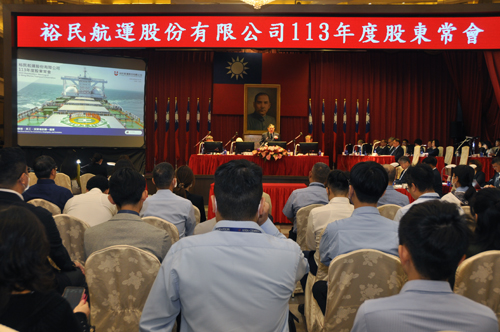 U-Ming Marine Transport held a regular shareholders meeting on June 3rd to report its performance to shareholders. At the meeting, proposals were passed on the 2023 financial statements and earnings distribution. The consolidated revenue for 2023 was NTD14.37 billion, with a net profit after tax and EPS of NTD2669 million and NTD3.24 billion, respectively. A cash dividend of NTD2.4 per share was issued to maintain a high cash dividend yield. The steady growth of the global economy further drives up the demand for bulk raw materials. The freight rate performance from January to April 2024 was impressive, and it is expected that the shipping industry will continue to be optimistic in the second half of the year. In 2023, a total of 9 environmentally friendly and energy-saving new ships were launched by U-Ming Marine Transport. The fleet is ready to welcome the market downturn and continue to create more profits for shareholders.
U-Ming Marine Transport held a regular shareholders meeting on June 3rd to report its performance to shareholders. At the meeting, proposals were passed on the 2023 financial statements and earnings distribution. The consolidated revenue for 2023 was NTD14.37 billion, with a net profit after tax and EPS of NTD2669 million and NTD3.24 billion, respectively. A cash dividend of NTD2.4 per share was issued to maintain a high cash dividend yield. The steady growth of the global economy further drives up the demand for bulk raw materials. The freight rate performance from January to April 2024 was impressive, and it is expected that the shipping industry will continue to be optimistic in the second half of the year. In 2023, a total of 9 environmentally friendly and energy-saving new ships were launched by U-Ming Marine Transport. The fleet is ready to welcome the market downturn and continue to create more profits for shareholders.Overview of Shipping Market
The global economy shows resilience in the process of stable recovery. The International Monetary Fund (IMF) estimates that the global GDP growth rate is 3.2% this year and next. Among them, the growth rate of Chinese Mainland this year is 5.0%, and that of India is 6.8%. They are the two fastest growing economies. The stable growth of the global economy further drives up the demand for bulk raw materials. According to Clarksons research, the growth rate of dry bulk cargo trade is estimated to be 3.6% per ton per nautical mile in 2024; The World Iron and Steel Association predicts that the global steel growth rate will reach 1.7% in 2024, and the transportation demand for iron ore will continue to rise. In addition, the growth rate of bauxite trade volume ranks first among all dry bulk goods, and demand is expected to grow by 8% this year, which will drive the demand for cape type ships. The freight rates from January to April 2024 were impressive, and the shipping industry remained optimistic in the second half of the year.
At present, the new ship order rate and fleet growth rate are 9% and 2.9%, respectively, which are historical lows. In addition, 20% of ships with a ship age of more than 15 years in the market will be phased out after environmental regulations are implemented. In addition, according to estimates, the speed of ship navigation has decreased by nearly 6% compared to the peak in 2021. Taking into account multiple factors, this will lead to a decrease in ship supply and a more balanced market supply and demand. On the other hand, the Red Sea crisis disrupted the shipping supply chain, causing ships to avoid the Suez Canal and detour through the Cape of Good Hope in South Africa, resulting in a decrease in capacity supply and an increase in demand for extended tonnage.
Advance deployment of energy-saving new ships to welcome performance growth
U-Ming Marine Transport took the lead in promoting the new ship construction plan, launching a total of 9 environmentally friendly and energy-saving new ships in 2023, in response to the fleet's two major competitive advantages of environmental protection and youth. In addition, the fleet will increase the proportion of intelligent applications, reduce failure rates and improve operational efficiency through ship networking management. The proprietary fleet safety management system (FSM) of U-Ming Marine Transport, in addition to obtaining SMARTShip Notation certification from Japanese classification societies such as NK, Norwegian DNV, Taiwan CR, and French BV, has also been awarded the Maritime Safety Award by the Singapore Maritime Authority. The most important thing is that U-Ming Marine Transport has an experienced management team that is adept at understanding market supply and demand trends, adjusting fleet schedules and spot ratios in a timely manner, and creating outstanding performance through flexible operations. U-Ming Marine Transport is ready to welcome the resurgence of the market and is expected to hit another business peak.
Emphasize ESG sustainable operation
U-Ming Marine Transport values ESG and will release the first independent greenhouse gas inventory report for its parent and subsidiary companies in 2024, expanding its information on carbon disclosure. At the same time, to help investors better understand the impact of climate risks and opportunities on the company's finances, U-Ming Marine Transport is leading the industry in planning and producing Task Force on Climate related Financial Disclosures (TCFD) (TCFD) independent reports.
U-Ming Marine Transport has been selected for several consecutive years by the FTSE4Good combination of the FTSE Taiwan Sustainability Index, as well as being selected by the Taiwan Board of Directors as one of the "2023 Taiwan Best in Class 100" enterprises, the Taiwan Institute for Sustainable Energy's "Platinum Award for Sustainability Report" and the "Taiwan Top 100 Sustainable Model Enterprises Award". It has also received the Department of Transport's "Expansion Fleet Excellence", "Development of Green Shipping Excellence", and "Support for Maritime Training Excellence" in the 2023 Performance Ship Transport Industry Selection. Waiting for three honors.
In terms of employee well-being, U-Ming Marine Transport has also won numerous awards, including the "Best Companies to Work for in Asia" and the "Diversity, Equality, and Inclusion Award" presented by the well-known Asian magazine HR Asia, Equity & Inclusion Awards、 Four major awards, including the Digital Transformation Awards and the Most Caring Company Awards, have also been awarded the Outstanding Enterprise Award for Sustainable Health and Safety in the Workplace by the Ministry of Labor Occupational Safety and Health in 2023, as well as the top 10% of the Outstanding Enterprise Award for Sustainable Health and Labor Leading Enterprises.
Future development strategy, dual growth goals
U-Ming Marine Transport will continue to research and purchase a new generation of zero carbon or alternative fuels dual fuel environmentally friendly energy-saving ships. Existing ships will evaluate the installation of the latest energy-saving equipment and plan to expand into the liquefied natural gas (LNG) transport ship and large wind power operation and maintenance ship (SOV) market, expand diversified layout, and respond to international environmental trends. In addition, we have also partnered with startups to upgrade U-Ming Marine Transport's proprietary Ship Safety Management System (FSM), utilize artificial intelligence technology to enhance navigation safety, and utilize system automation to monitor the Carbon Intensity Index (CII), continuously improving and optimizing ship efficiency. To provide better transportation services and various types of bulk carriers, improve transportation efficiency and reduce carbon emissions to comply with international environmental laws, we will also timely replace the old with the new and maintain a youthful fleet. The long-term growth strategy goal of U-Ming Marine Transport's fleet is to have more than 100 ships and a total deadweight ton exceeding 10 million tons.
Fleet information
U-Ming Marine Transport currently has Capesize Panamax、Post Panamax、Ultramax、 Cement specific ships, ultra large oil tankers (VLCCs), ultra large ore carriers (VLOCs), and offshore wind power personnel transport ships (CTVs), among other ship types, have their own fleet and joint venture and under construction ships, with a total capacity of 72 vessels and a total deadweight tonnage of 8.84 million tons. They have subsidiaries overseas in Singapore, Hong Kong, Xiamen, and other regions, while Taiwan has a subsidiary specializing in green energy transportation, U-Ming Marine Transport Wind Energy Shipping Company.
#


